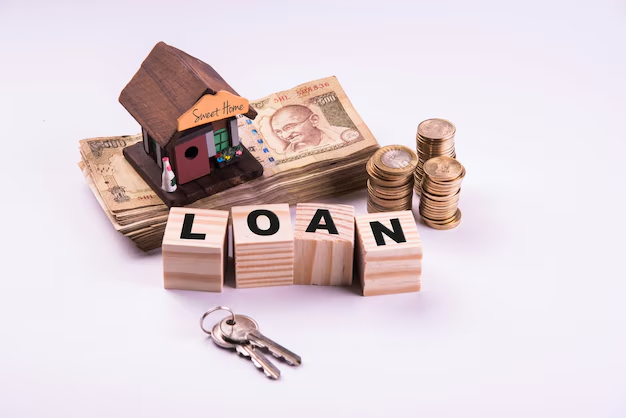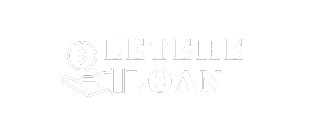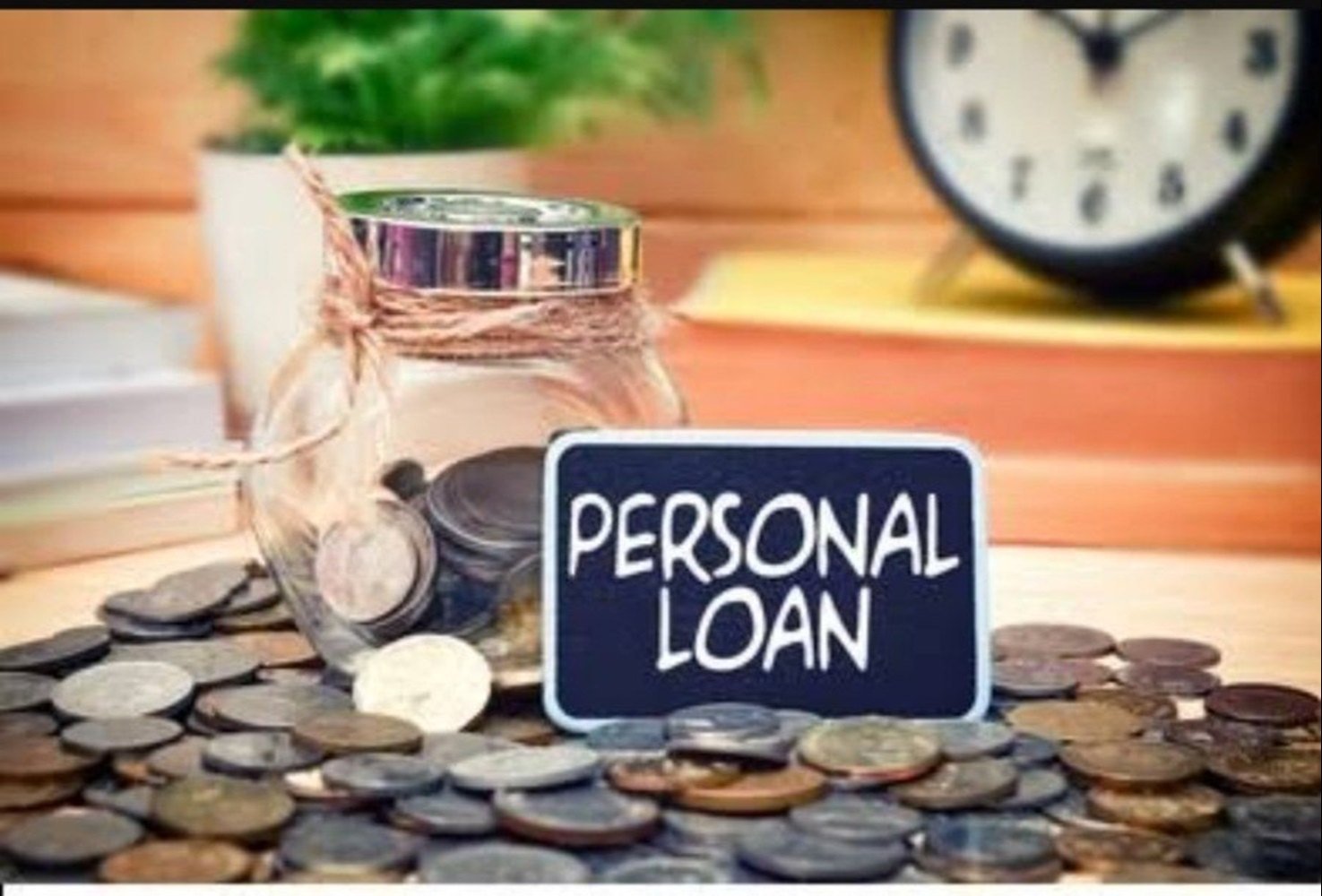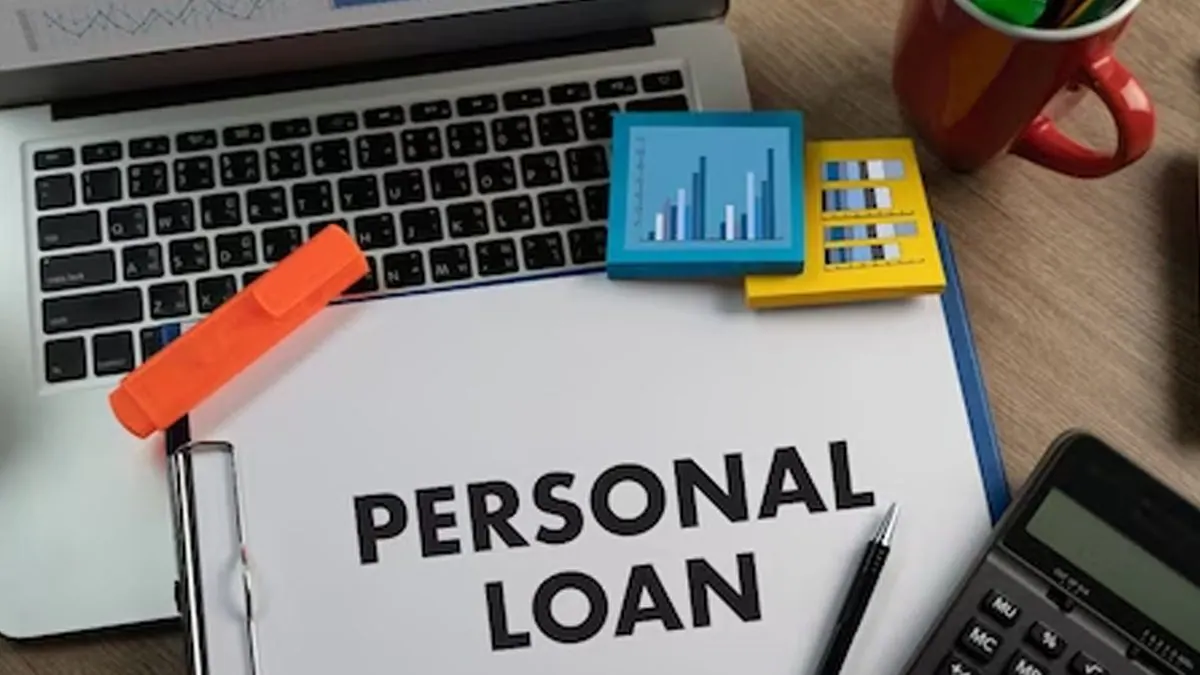When you’re in need of extra funds, a personal loan can be a smart way to access the money you need. From debt consolidation to covering medical expenses or home renovations, a personal loan offers the flexibility to use the funds for various purposes. However, Personal Loan Types before applying for a personal loan, it’s essential to understand the different types of personal loans available to make an informed decision about which one best suits your needs.
In this article, we will explain the different types of personal loans, their pros and cons, and how to choose the right one for your specific situation. We’ll also address common questions, offer insights on the eligibility factors, and provide tips to help you secure the best loan terms possible.
Key Takeaways:
- There are various types of personal loans, each designed for different financial needs, including unsecured loans, secured loans, debt consolidation, payday loans, and more.
- Fixed-rate loans provide stability, while variable-rate loans offer potential for lower initial rates.
- Understand the eligibility requirements and compare loan terms before making a decision.
- For bad credit, secured loans or loans with a co-signer may be the best option.
- Always check for prepayment penalties and fees before committing to a loan.
Personal Loan Types

Personal loans come in several types, each designed to meet different financial needs. Below are the most common types of personal loans you may encounter:
Unsecured Personal Loans
An unsecured personal loan is a loan that does not require collateral. This means you don’t have to pledge any assets, such as your car or home, to secure the loan. Lenders base their decision on your creditworthiness, including factors like your credit score, income, and employment status.
- Pros:
- No collateral required, so you don’t risk losing assets.
- Generally faster approval and disbursement.
- Ideal for consolidating credit card debt or covering unforeseen expenses.
- Cons:
- Higher interest rates, particularly for borrowers with less-than-ideal credit scores.
- Loan amounts may be lower compared to secured loans.
When to Use: Unsecured personal loans are best when you don’t have assets to offer as collateral or when you don’t want to put your assets at risk. These loans are useful for consolidating debt, handling medical emergencies, or paying for significant purchases like vacations or weddings.
Secured Personal Loans
Unlike unsecured loans, secured personal loans require you to pledge an asset as collateral. This could be your home, car, or savings account. In the event that you fail to repay the loan, the lender has the right to seize the collateral.
- Pros:
- Lower interest rates due to the added security for the lender.
- Higher loan amounts are often available.
- Easier to qualify for, especially for borrowers with poor or no credit history.
- Cons:
- Risk of losing your collateral if you default on the loan.
- Typically longer approval times due to the need for collateral appraisal.
When to Use: Secured loans are ideal when you need to borrow a larger amount of money, especially if your credit history is not perfect. These loans are often used for major expenses like home improvements, car repairs, or refinancing existing debt.
Debt Consolidation Loans
A debt consolidation loan is a type of personal loan that helps you combine multiple high-interest debts (like credit card balances or personal loans) into a single loan with a lower interest rate. The goal is to simplify your debt repayment process and save money on interest.
- Pros:
- Simplifies debt management by consolidating multiple payments into one.
- Typically offers lower interest rates compared to credit cards.
- Reduces the risk of late payments and late fees.
- Cons:
- May require a good credit score to qualify for favorable rates.
- You may end up paying more over the long term if you extend the loan term.
When to Use: Debt consolidation loans are ideal for borrowers with multiple high-interest debts, such as credit card balances, who want to streamline their payments and reduce interest costs.
Payday Loans
Payday loans are short-term loans that are typically due on your next payday. These loans are usually for smaller amounts and are marketed as a quick solution for urgent financial needs. However, payday loans often come with extremely high interest rates and fees.
- Pros:
- Quick and easy access to cash, usually without a credit check.
- Available even for borrowers with poor credit scores.
- Cons:
- Extremely high-interest rates, sometimes exceeding 400% APR.
- Risk of falling into a debt cycle if you can’t repay on time.
When to Use: Payday loans should only be used for emergencies when you absolutely need cash and have no other options. They are not ideal for long-term financial solutions.
Peer-to-Peer (P2P) Loans
Peer-to-peer loans are personal loans that are funded by individual investors rather than traditional financial institutions like banks. Online P2P lending platforms match borrowers with investors who are willing to fund their loans. These loans can be unsecured or secured.
- Pros:
- Potential for lower interest rates, especially for borrowers with good credit.
- Flexible terms, as P2P platforms often offer custom loan terms.
- A streamlined and transparent lending process.
- Cons:
- Loan approval can take longer compared to traditional lenders.
- May be more difficult to secure a loan if you have poor credit.
When to Use: P2P loans are suitable for borrowers who have good to excellent credit and are looking for potentially lower interest rates and a more flexible lending process.
Co-signed Personal Loans
A co-signed personal loan involves an additional person, known as the co-signer, who agrees to take responsibility for the loan if you fail to make the payments. This can help borrowers with limited credit histories or poor credit scores secure a loan at more favorable terms.
- Pros:
- Can help borrowers with poor credit qualify for a loan.
- The co-signer’s creditworthiness may help secure a lower interest rate.
- Cons:
- The co-signer is responsible for the loan if you default, which can strain relationships.
- Risk of damaging the co-signer’s credit if payments are missed.
When to Use: A co-signed loan is ideal for borrowers with a poor or no credit history who have someone willing to co-sign the loan for them.
Fixed-Rate Personal Loans
Fixed-rate personal loans offer an interest rate that remains the same throughout the life of the loan. This means your monthly payments will stay consistent, making it easier to budget for the loan.
- Pros:
- Predictable monthly payments.
- Ideal for borrowers who want stable, long-term loan terms.
- Cons:
- May come with slightly higher interest rates compared to variable-rate loans.
- Less flexibility if interest rates decrease after the loan is secured.
When to Use: Fixed-rate personal loans are best for borrowers who prefer stability and want to lock in a predictable interest rate for the duration of the loan.
Variable-Rate Personal Loans
A variable-rate personal loan offers an interest rate that can fluctuate over time, typically based on market conditions or an index, such as the prime rate.
- Pros:
- Potential for lower initial interest rates.
- Can save money if interest rates remain stable or decrease.
- Cons:
- Uncertainty in payment amounts due to fluctuating rates.
- Interest rates may rise over time, leading to higher monthly payments.
When to Use: Variable-rate personal loans are best for borrowers who expect interest rates to remain stable or decrease in the future and are comfortable with potential rate fluctuations.
What is the Process to Avail Personal Loan?

The process of availing a personal loan is simple and quick in today’s digital era:
- Check eligibility: Banks and NBFCs have online eligibility calculators on their websites. Enter details like income, employment, credit score, etc., to check the maximum loan amount and tenure you can get approved for.
- Apply online: You can submit your loan application online by providing basic personal and financial information along with the required documents. KYC can also be completed online.
- Get in-principle approval: If you meet the criteria, you will receive loan approval in principle, which indicates your loan eligibility.
- Documentation and verification: Submit signed physical copies of documents for verification. A bank representative will also call your office or home to verify your income.
- Loan approval: After completing due diligence, the bank will approve your loan application and provide a sanction letter detailing loan terms.
- Sign agreement: Accept loan terms, sign the agreement and return it to the bank.
- Loan disbursal: After the documentation is completed, the loan amount will be credited to your bank account within 2-7 working days.
Interest Rates on Personal Loans
Personal loan interest rates vary from 5% to 42% p.a. depending on these factors:
- Your credit score: The higher your score, the lower the rate.
- Your income: A higher income means lower risk for the financial institution.
- Your employment profile: Salaried individuals get better rates.
- Relationship with the bank: Existing customers may get lower rates.
- Loan amount and tenure: Longer tenures and high amounts attract higher rates.
- Lender: Compare interest rates offered by banks, NBFCs, fintech firms, etc., before applying.
- Special offers : Banks, NBFCs, and other financial institutions offer promotional rates sometimes.
Ensuring a high credit score and a stable income and applying for the right loan can help you secure a competitive interest rate.
What are my Repayment Options on Personal Loans?
Personal loans offer flexible repayment options. You can choose the scheme as per your cash flow:
- EMI: Make fixed Equated Monthly Instalments (EMIs) for the entire loan tenure. EMI consists of principal and interest components.
- Part-prepayment: Pay lump sum amounts over and above EMIs to close the loan faster. This reduces interest outgo. Financial institutions allow part-prepayment without charges after the first six months.
- Top up: If you used only part of the sanctioned loan amount initially, you could withdraw the remaining as per your need later.
- Balance transfer: To reduce your interest burden, you can transfer an outstanding loan from another lending institution to a new one at a lower interest rate. The new lender pays off the old loan.
- Moratorium or EMI holiday: Option to pause EMIs for a few months during emergencies. Interest accrues during this period, but the tenure is extended.
- Online account management: Login online anytime to make payments, track repayments, get e-receipts and account statements.
Evaluate your income, cash flows and repayment capacity to choose the suitable repayment structure.
Which type of personal loan is right for you?
You will want to research which options best suit your financial situation. Compare the personal loans’ interest rates and terms, how long you will have to repay the amount you borrow, and whether the debt is secured or unsecured. You will also want to research customer reviews of different lenders.
Features of personal loans
- No security: Typically, personal loans are unsecured, which implies no possession has to be pledged as security. This enables a wider range of borrowers to access them.
- Fixed interest rates: The majority of personal loans come with fixed interest rates hence the monthly charges remain constant. This aids debtors in budgeting their finances properly.
- Flexibility: There are numerous reasons as to why a personal loan may be granted such as for a wedding, improvement of houses, medical expenses, travel and for consolidation of debts. Usually, the lenders do not put any limits on the usage of the funds.
- Repayment plans: The borrowers accept a schedule for the repayment of the loan, generally ranging from 1 to 7 years. This helps to lower the amount of monthly payments since the cost of expensive items is spread over a period of time.
- Faster processing: Unlike other types of loans, personal loans are usually processed and paid out quicker. Given the fact that most lenders will accept applications over the internet and offer quick approval with the funds available within a few days.
Benefits of IndusInd Bank Personal Loan

– Digital Application Process: IndusInd Bank offers 100% paperless application process for personal loan without the requirement of income proof or visiting a bank branch.
– Competitive Interest Rates: The bank offers competitive interest rates, making borrowing cost-effective for individuals seeking personal loans for home renovation, travel, wedding, or education.
– Quick Approvals: IndusInd Bank prioritizes efficiency, providing quick approvals for its Personal Loan variants. This allows borrowers to access funds promptly, addressing their immediate financial needs.
– Flexible Repayment Options: Recognizing the diverse financial situations of borrowers, IndusInd Bank offers flexible repayment options. This ensures that monthly installments are manageable, aligning with individual budget constraints.
How a Personal Loan Works
To get a personal loan, you need to apply to a lender. Again, this can be a bank, credit union, or online personal loan lender.
Generally, you would first complete an application. The lender reviews it and decides whether to approve or deny it. If approved, you’ll be given the loan terms, which you can accept or reject. If you agree to them, the next step is finalizing your loan paperwork.
When that’s done, the lender will fund the loan, which means paying you the proceeds. Depending on the lender, these may arrive through a direct deposit into your bank account or a check. After the loan is funded, you can use the money as you see fit. You then have to begin repaying the loan according to the terms established in your loan agreement.
Example of a Personal Loan
When considering a personal loan, it’s helpful to understand how much it may cost. The annual percentage rate (APR) on a personal loan represents the annualized cost of repaying the loan based on the interest rate and fees. The APR and loan term can determine how much you pay in interest total over the life of the loan.5
For example, assume you get a $10,000 personal loan with an APR of 7.5%. The loan has a repayment term of 24 months. Using those terms, your monthly payment would be $450 and the total interest paid over the life of the loan would be $799.90.
Now assume you borrow the same amount but with different loan terms. Instead of a two-year term, you have three years to repay the loan, and your interest rate is 6% instead of 7.5%. Using those terms, your monthly payment would drop to $304, but your total interest paid would increase to $951.90.
Comparing the numbers this way is important if you want to get the lowest monthly payment possible or pay the least amount of interest for a personal loan. Using a simple online personal loan calculator can help you determine what kind of payment amount and interest rate are the best fit for your budget.
Where to Find Personal Loans
The first place to look for personal loans may be your current bank or credit union. Your personal banker can advise you on what types of personal loans may be available and the borrowing options for which you’re most likely to qualify.
Personal loans can also be found online. Numerous lenders offer personal loans online. You can apply electronically, get a decision in minutes and, in some cases, get funding in as little as 24 to 48 hours after loan approval.
When comparing personal loans online or off, pay close attention to the details. Specifically, consider the following:
- Interest rate
- Fees
- Repayment terms
- Borrowing limits (minimum and maximum)
- Collateral requirements
What Is the Difference Between a Cash Advance Loan and a Personal Loan?
A cash advance loan is a loan that is designed to provide funds for a short time, typically for emergencies. It usually comes with a higher interest rate and a fee. Personal loans generally have longer terms and lower interest rates than cash advance loans.6
How Can I Get Approved for a Personal Loan?
Each lender has different terms for their loans, including requirements for approval. To increase your likelihood of getting a loan, you can work to improve your credit score and financial standing, in part by reducing your debt. If you have difficulty getting approved, you may consider working with a lender who is comfortable working with loans that have co-signers. Getting a co-signer with good credit increases your chances for approval.
Do Personal Loans Have Fees?
A personal loan can include fees such as origination fees, which are added to the total cost of the loan. Other fees might include documentation fees or late fees. Each lender has different terms for their fees, so make sure you understand the fees your lender charges.
Also Read : Personal Loan Eligibility Explained: Key Factors You Must Know
Conclusion
Choosing the right type of personal loan is crucial for meeting your financial goals while minimizing costs. By understanding the various types of personal loans, such as unsecured, secured, debt consolidation, payday, peer-to-peer, co-signed, fixed-rate, and variable-rate loans, you can select the one that best aligns with your needs and financial situation.
When selecting a loan, consider factors such as your credit score, income, loan amount, and repayment terms. Always shop around, compare interest rates, and evaluate the total cost of borrowing to ensure you’re getting the best deal.
FAQs
What is the best type of personal loan for bad credit?
If you have bad credit, a secured personal loan or a co-signed loan may be your best option. Some lenders also specialize in offering personal loans to borrowers with poor credit, though the interest rates may be higher.
Can I use a personal loan for anything?
Yes, personal loans are flexible and can be used for various purposes, such as consolidating debt, paying for medical bills, home improvements, or financing a large purchase. However, some lenders may restrict the use of the loan for certain purposes.
How do I qualify for a personal loan?
To qualify for a personal loan, lenders typically consider factors such as your credit score, income, debt-to-income ratio, employment status, and the loan amount you are requesting.
Is it better to get a fixed-rate or variable-rate personal loan?
It depends on your financial situation and preferences. Fixed-rate loans offer stability with predictable payments, while variable-rate loans may offer lower initial interest rates but come with the risk of fluctuating payments over time.
How long does it take to get approved for a personal loan?
The approval process can vary depending on the lender. Traditional banks may take a few business days, while online lenders and peer-to-peer platforms may offer faster approval times, sometimes within minutes.
Can I apply for a personal loan with a co-signer?
Yes, many lenders allow co-signers. A co-signer can help improve your chances of approval and potentially secure a better interest rate, especially if your credit is not ideal.
Can I pay off a personal loan early?
Most personal loans allow for early repayment without penalties. However, it’s important to check with the lender beforehand, as some loans may include prepayment fees or restrictions.





